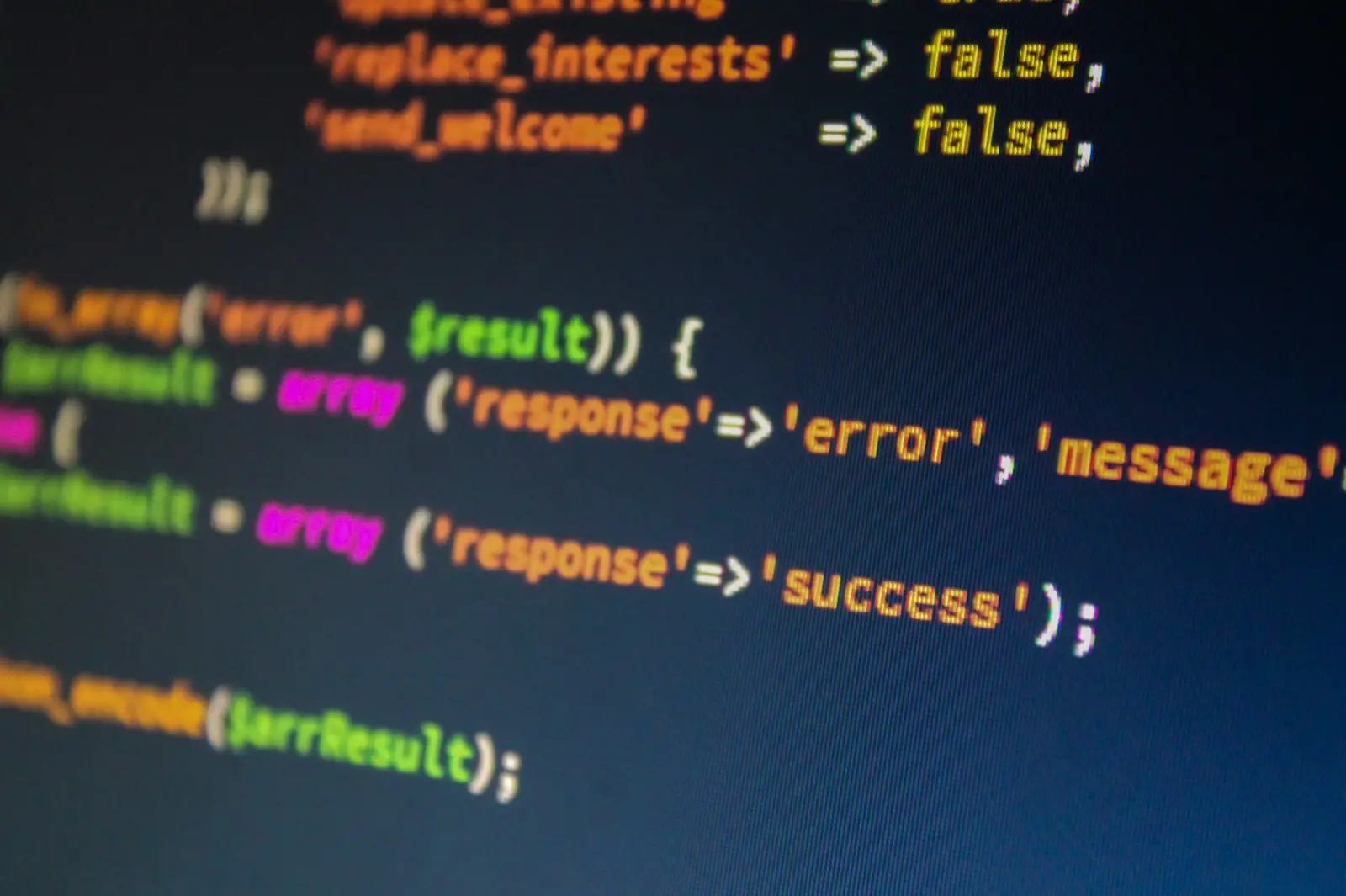Introduction
PHP, also known as Hypertext Preprocessor, is one of the most widely-used programming languages for web development. It was originally created in 1994 and has since gained popularity due to its simplicity and ease of use. However, despite its large user base and successful implementation in countless websites, PHP has faced criticism and garnered a significant number of detractors.
While it’s important to note that PHP does have its merits and is still a preferred choice for many developers, it’s worth exploring the reasons why some individuals or groups may harbor negative sentiments towards the language. This article delves into the various factors that contribute to the dislike of PHP, giving insight into the criticisms surrounding its consistency, security vulnerabilities, performance issues, limited functionality, and other factors that have affected its reputation.
It’s essential to approach this topic with an open mind and avoid generalizing the experiences or opinions of others. The purpose of this discussion is to provide a balanced view of the concerns that have been raised about PHP. It’s worth mentioning that as with any programming language, there are always varying viewpoints, and what one person dislikes about PHP, another person might find perfectly fine or even prefer.
Ultimately, your decision to use PHP or any other programming language should be based on your project’s specific requirements and your own experience and expertise. By understanding the criticisms associated with PHP, you can make an informed decision and weigh the pros and cons before initiating any development projects.
Lack of Consistency
One of the main criticisms directed towards PHP is its lack of consistency within the language itself. This inconsistency can be observed in several aspects of PHP’s design, which can make it challenging for developers to maintain a clean and consistent codebase.
First and foremost, PHP has a myriad of functions and libraries available for developers to use. However, the naming conventions and parameter orders vary greatly between different functions. This lack of uniformity can lead to confusion and errors when working with multiple libraries or when collaborating with other developers.
In addition, the syntax of PHP can be unintuitive at times, with certain constructs behaving differently depending on the context. This inconsistency can make it difficult for developers, especially those coming from other programming languages, to quickly grasp and write PHP code effectively.
Furthermore, PHP has evolved over the years, resulting in multiple versions and backward compatibility issues. This means that code written for an older version of PHP may not work correctly or efficiently on newer versions. This lack of consistency in backward compatibility can lead to additional effort and challenges when upgrading or maintaining existing PHP projects.
Overall, the lack of consistency in naming conventions, syntax, and backward compatibility poses a significant hurdle for developers seeking to write clean and maintainable PHP code. It requires developers to invest additional time and effort in understanding and adapting to the language’s nuances, which can ultimately hamper productivity and code quality.
However, it’s worth noting that efforts have been made to improve the consistency of PHP, such as through the PHP-FIG (Framework Interoperability Group) initiative, which aims to promote interoperability and standardization within the PHP ecosystem. Nonetheless, achieving complete consistency within a language as widely used and evolving as PHP remains a complex challenge.
Inconsistencies in Syntax and Naming Conventions
Another prevalent criticism of PHP centers around the inconsistencies in its syntax and naming conventions. These inconsistencies can lead to confusion, hinder code readability, and increase the likelihood of errors in PHP projects.
PHP’s syntax is often cited as being non-standard and idiosyncratic. For example, the use of the dollar sign ($) to denote variables is unique to PHP and can be perplexing for developers who are accustomed to different programming languages. Additionally, the inconsistent placement of function or method arguments, such as parameters being passed by value or by reference, requires careful attention and can lead to unexpected behavior.
Furthermore, PHP’s naming conventions can be erratic and inconsistent. While there are some established conventions, such as using lowercase for variables and functions and uppercase for constants, there is no strict enforcement of these conventions. This lack of consistency can make it challenging for developers to quickly understand and navigate code written by others, impacting collaboration and maintainability.
In addition, PHP has a large standard library with a wide range of functions, each with its own naming convention. Some functions use abbreviations, while others use full-length names, leading to confusion and inconsistency. This inconsistency extends to third-party libraries as well, as there is no standardized approach to naming conventions across the PHP ecosystem.
These inconsistencies in syntax and naming conventions can be especially problematic for developers who are new to PHP or who come from backgrounds in other programming languages. The learning curve becomes steeper as they need to familiarize themselves with PHP’s unique syntax and adapt to its unconventional naming conventions.
While efforts have been made to improve the consistency within PHP, such as adopting more standardized practices through the PHP-FIG initiative, achieving complete consistency remains an ongoing challenge. Developers need to be mindful of these inconsistencies and invest in maintaining clear and well-documented code in order to mitigate the potential issues caused by these syntactical and naming irregularities.
Security Vulnerabilities and Poor Coding Practices
PHP has faced criticism for its historical reputation regarding security vulnerabilities and poor coding practices. While PHP itself is not inherently insecure, the way it has been traditionally used and the prevalence of poorly written code have contributed to these concerns.
One factor is the ease of getting started with PHP, as it allows even novice programmers to quickly build dynamic websites. However, this simplicity can lead to inexperienced developers not fully understanding the security implications of their code. As a result, PHP applications can become vulnerable to common web security threats, such as SQL injection, cross-site scripting (XSS), and remote code execution.
Another contributing factor is the abundance of outdated and insecure PHP code snippets and tutorials that are still available online. These resources may not adhere to best coding practices, making it easy for new developers to fall into the trap of using insecure techniques. Additionally, the lack of proper filtering and validation functions in PHP’s core library can lead to vulnerabilities if not handled with care.
Moreover, the global nature of PHP variables, if not properly managed, can make it susceptible to variable injection attacks, where an attacker can modify variables in unexpected ways and manipulate the application’s behavior.
Fortunately, efforts have been made to address these concerns. PHP has introduced security-focused features and functions over the years, such as built-in input sanitization and output escaping mechanisms to mitigate common vulnerabilities. Additionally, the PHP community emphasizes the importance of following secure coding practices, promoting education and awareness around secure coding principles.
Nevertheless, the presence of insecure PHP applications and the prevalence of poor coding practices remains a concern. It is crucial for developers working with PHP to stay updated on the latest security best practices, regularly update their PHP installations, and implement additional security measures, such as secure coding frameworks or third-party security tools, to mitigate potential risks.
Performance and Scalability Issues
PHP has often been criticized for its perceived performance and scalability limitations, especially in comparison to other programming languages such as Java or Node.js. These concerns stem from various factors that impact the execution speed and ability of PHP applications to handle large workloads.
One aspect that affects performance is the fact that PHP is an interpreted language rather than a compiled language. This means that PHP code needs to be translated into bytecode and interpreted at runtime, which can result in slower execution compared to languages that are precompiled. Additionally, PHP’s dynamic typing nature can lead to runtime type inference, which can further impact performance.
Furthermore, PHP’s default configuration settings may not be optimized for high-performance scenarios. In some cases, configurations designed for ease of use and compatibility can result in suboptimal performance. Developers need to fine-tune their PHP settings and leverage various optimization techniques, such as opcode caching and proper memory management, to maximize performance.
In terms of scalability, PHP has faced criticism for its traditional lack of support for multithreading and asynchronous programming. While newer versions of PHP, such as PHP 7, have introduced improvements in this area, the language still struggles to match the scalability capabilities of languages that natively support concurrent processing.
Despite these concerns, it’s important to note that PHP can still perform well in many scenarios. Proper optimization, caching strategies, and efficient use of database queries can significantly improve the performance of PHP applications. Moreover, PHP frameworks such as Laravel and Symfony offer built-in caching and optimization features that can help address scalability challenges.
Ultimately, the performance and scalability of a PHP application depend on various factors, including code quality, server configuration, and the specific workload it needs to handle. While it may not be the best choice for every high-performance or highly scalable application, PHP can still be a viable option for a wide range of projects, especially when combined with proper optimization techniques and architectural considerations.
Limited Functionality and Lack of Modern Features
PHP has faced criticism for its perceived limitations in terms of functionality and its perceived lack of modern features compared to other programming languages. These concerns primarily revolve around the language’s standard library and its ability to handle advanced programming concepts.
One of the common criticisms is the perceived lack of sophisticated data structures and algorithms in PHP’s standard library. When compared to languages like Python or Java, PHP’s standard library offers fewer built-in data structures and algorithms, which can hinder the development of complex applications that require advanced data manipulation and processing.
Furthermore, PHP’s support for object-oriented programming (OOP) has been gradually improved over the years, but it still lacks some of the advanced OOP features available in other languages. For instance, PHP’s approach to inheritance and interfaces is relatively simplistic compared to languages with more robust type systems.
In terms of modern features, PHP historically lagged behind other programming languages in embracing new technologies and paradigms. This delayed adoption of modern features, such as native support for asynchronous programming, functional programming constructs, or strong typing, has led to the perception that PHP is not well-suited for developing cutting-edge applications.
However, it’s important to note that PHP has evolved over time and has introduced several modern features and improvements in recent versions. PHP 7, for example, introduced significant performance improvements and added features like type declarations and return type hints. Additionally, PHP frameworks and libraries, such as Laravel and Symfony, provide extensive functionality and modern features, making PHP development more flexible and powerful.
While PHP may have had limitations in the past, it is continuously evolving and adapting to stay relevant in the rapidly changing technology landscape. Developers can leverage the vast ecosystem of PHP packages and frameworks to supplement the perceived limitations of the core language, ultimately expanding the possibilities and functionality of their PHP applications.
Lack of Strict Typing and Error Handling
PHP has been criticized for its lack of strict typing and error handling mechanisms, which can lead to potential issues and make code maintenance and debugging more challenging.
One of the primary criticisms is PHP’s dynamic typing system, which allows variables to be assigned values of different types without explicit declaration. While this flexibility can make PHP code more concise and convenient, it also increases the risk of type-related bugs. Without strict typing, it’s possible for unexpected type conversions to occur, potentially leading to unexpected behavior and difficult-to-find bugs.
Another area of concern is PHP’s loose error handling. By default, PHP does not enforce strict error handling, meaning that errors and warnings can often go unnoticed unless explicitly handled by the developer. This leniency can lead to errors being ignored or overlooked, ultimately compromising the stability and reliability of PHP applications.
However, it’s worth noting that PHP has made efforts to improve its typing and error handling capabilities in recent versions. PHP 7 introduced type declarations, allowing developers to enforce stricter typing on function parameters and return values. This helps reduce the likelihood of type-related bugs and provides better clarity when working with PHP code.
Additionally, PHP provides various levels of error reporting and configurable error handling mechanisms, allowing developers to define how errors and warnings are reported and handled during runtime. By increasing error reporting levels and implementing proper error handling strategies, developers can improve the robustness and maintainability of PHP applications.
While the lack of strict typing and loose error handling in PHP can pose challenges, it’s important to understand that these aspects can be mitigated through the use of best practices, code reviews, and adherence to coding standards. Additionally, PHP frameworks often offer additional layers of error handling and debugging tools that can help identify and resolve errors more effectively.
Ultimately, it’s essential for PHP developers to be aware of the potential pitfalls associated with PHP’s dynamic typing and error handling model. By using proper coding practices and leveraging the available tools and features, they can develop more robust, maintainable, and error-free PHP applications.
Overreliance on Frameworks
One of the criticisms often directed at PHP is the tendency for developers to over-rely on frameworks to build web applications. While frameworks can provide significant advantages, such as increased productivity and code organization, the overuse or misuse of frameworks can lead to some drawbacks.
Firstly, the extensive use of frameworks can result in a bloated codebase. Frameworks typically come with a lot of pre-built functionality and libraries, which may include components that are not necessary for a particular project. This can lead to unnecessary complexity and reduce the overall performance of the application.
Furthermore, over-reliance on frameworks can limit the developer’s understanding of core PHP concepts. Frameworks often provide abstractions that hide the intricacies of the underlying PHP code. While this can be beneficial for rapid development, it can hinder a developer’s ability to fully grasp the workings of PHP or solve critical issues that require a deeper understanding of the language.
Another potential drawback is the loss of flexibility and customization. Frameworks typically follow certain conventions and impose specific coding patterns. While this can create consistency and standardization, it can also restrict developers from implementing unconventional or specific functionalities that may not align with the framework’s design principles.
Moreover, relying heavily on frameworks can lead to a decrease in problem-solving skills and critical thinking. Dealing with the challenges and intricacies of raw PHP code helps developers sharpen their analytical and problem-solving abilities. However, when heavily relying on frameworks, developers may become less adept at handling issues that go beyond the capabilities and configurations provided by the framework.
However, it’s worth noting that frameworks can be immensely beneficial when used appropriately. They can expedite development, provide code organization, and offer reliable solutions to common problems. Additionally, frameworks often have active communities that provide support, documentation, and updates.
To strike a balance, developers should carefully evaluate the specific needs of their project and choose frameworks judiciously. It’s crucial to understand the underlying PHP principles and be able to work with pure PHP code when necessary. By leveraging the strengths of frameworks while maintaining a solid foundation in PHP, developers can build efficient, maintainable, and adaptable applications.
Poor Reputation and Negative Stereotypes
PHP has garnered a poor reputation and negative stereotypes throughout its history, which can influence perceptions and attitudes towards the language. These negative sentiments are perpetuated by various factors and misconceptions surrounding PHP.
One factor contributing to the poor reputation of PHP is its early years when it was criticized for being inconsistent and having security vulnerabilities. While PHP has evolved significantly since then, these early impressions have persisted, leading to a lingering negative perception of the language.
Additionally, the ease of entry into PHP development has resulted in a large number of amateur or inexperienced programmers using the language. This has led to the proliferation of low-quality code and poorly developed PHP applications, further reinforcing the negative stereotypes associated with PHP. It’s easy for critics to attribute these issues to the language itself rather than recognizing that code quality is a developer-dependent factor.
Furthermore, PHP’s simplicity and loose-typing nature can be seen as a double-edged sword. While these aspects make it easy for beginners to grasp and start building web applications, they can also result in less disciplined coding practices and suboptimal performance if not used correctly.
Negative stereotypes also stem from comparisons between PHP and other languages. PHP has been compared unfavorably to more specialized languages, such as Python or JavaScript, which are often seen as more powerful and versatile in their respective domains. These comparisons can overshadow PHP’s strengths and give rise to misperceptions about its capabilities.
It’s important to recognize that the negative stereotypes surrounding PHP are, to a large extent, based on historical perceptions and generalizations. PHP has evolved significantly, with improved performance, robust frameworks, and a vibrant community contributing to its ongoing development.
Nonetheless, developers working with PHP must strive to challenge these negative stereotypes by writing clean code, following best practices, and being active members of the PHP community. By demonstrating the potential of PHP through high-quality projects, developers can help shift the perception of the language and showcase its strengths and capabilities.
Ultimately, it’s crucial to approach PHP with an open mind, recognizing its strengths and weaknesses in context. Adhering to good coding practices, staying updated with the latest developments, and leveraging the vast ecosystem of PHP tools and frameworks can help create successful and reputable PHP projects.
Conclusion
In conclusion, PHP, like any programming language, has its share of criticisms and drawbacks. However, it’s essential to approach these criticisms with a balanced perspective and recognize that PHP also has its strengths and benefits.
From its lack of consistency in syntax and naming conventions to security vulnerabilities, performance concerns, and limited functionality, PHP has faced various criticisms throughout its existence. These issues have contributed to the negative stereotypes surrounding the language.
However, it’s worth noting that PHP continues to evolve and improve with each new version. Efforts have been made to address many of the concerns raised, with advancements in performance, security, and modern feature adoption. Additionally, the PHP community and ecosystem offer a wealth of resources, frameworks, and libraries that can enhance productivity and code quality.
To make the most of PHP, developers need to be aware of these criticisms and challenges while striving to follow best practices, adhere to coding standards, and continually update their knowledge of the language. Leveraging the extensive PHP ecosystem, staying informed about the latest developments, and actively contributing to the community can help overcome these challenges and deliver successful PHP projects.
Ultimately, the choice of programming language should always be based on the specific requirements of a project and the developer’s familiarity and expertise. PHP remains a popular and widely-used language for web development, and with the right approach, it can deliver efficient, maintainable, and secure applications.
So, rather than dismissing PHP based solely on its criticisms, it is essential to take a pragmatic approach, understanding its strengths and weaknesses, and leveraging its capabilities to build robust and successful web applications.

























